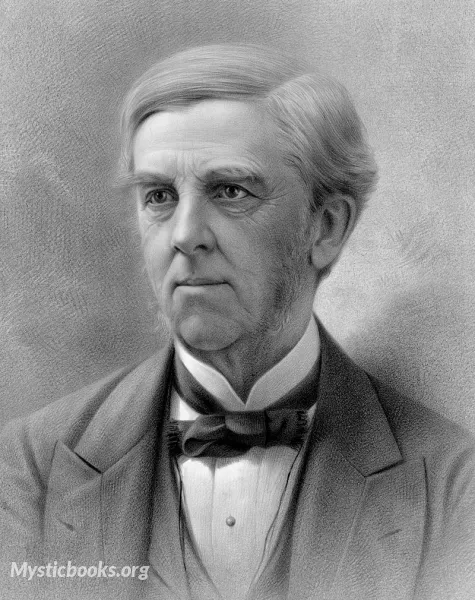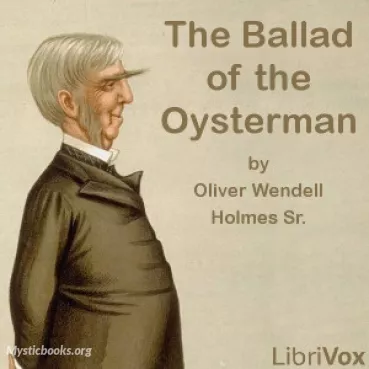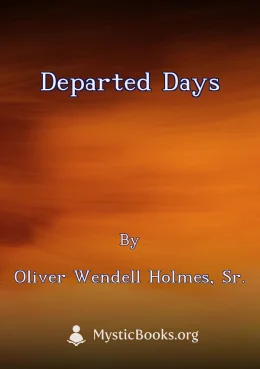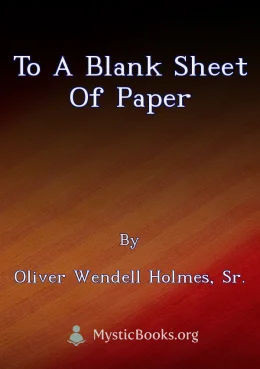
Timeline
Title
Country/Nationality
Oliver Wendell Holmes, Sr.
Oliver Wendell Holmes Sr. (August 29, 1809 – October 7, 1894) was an American physician, poet, and polymath based in Boston. Grouped among the fireside poets, he was acclaimed by his peers as one of the best writers of the day. His most famous prose works are the "Breakfast-Table" series, which began with The Autocrat of the Breakfast-Table (1858). He was also an important medical reformer.
Early life and education
Holmes was born in Cambridge, Massachusetts, to Abiel Holmes, a clergyman and historian, and Sarah Wendell Holmes. He attended Phillips Academy in Andover, Massachusetts, and then Harvard University, where he graduated in 1829. He studied medicine at Harvard Medical School, graduating in 1836.
Medical career
After graduating from medical school, Holmes practiced medicine in Boston for several years. He was a gifted diagnostician and a pioneer in the use of ether anesthesia. He also wrote extensively on medical topics, including the contagiousness of puerperal fever.
Literary career
Holmes's literary career began in the 1830s, when he began publishing poems and essays in magazines. He was a prolific writer, and his works ranged from poetry and essays to novels and medical treatises. His most famous prose works are the "Breakfast-Table" series, which began with The Autocrat of the Breakfast-Table (1858). These essays are a collection of conversations between Holmes and a group of fictional characters. They are witty, insightful, and often philosophical.
Philosophy
Holmes's philosophy was a blend of pragmatism and idealism. He believed that the world was constantly changing, and that truth was relative. However, he also believed that there were some universal truths, such as the importance of love, compassion, and justice.
Death and legacy
Holmes died in Boston in 1894. He is remembered as one of the most important figures in American literature and medicine. His works are still read and enjoyed today.
Interesting facts
- Holmes was a close friend of Ralph Waldo Emerson and Henry Wadsworth Longfellow.
- He was a vocal critic of slavery and the Mexican-American War.
- He was the father of Oliver Wendell Holmes Jr., a Supreme Court justice.
- He was a member of the Metaphysical Club, a group of philosophers and scientists who met in Boston in the 1830s.
Books by Oliver Wendell Holmes, Sr.

Elsie Venner
What if a young woman was born with the intelligence of a genius, but the instincts of a wild animal? In Elsie Venner, Oliver Wendell Holmes, Sr. explores this fascinating and disturbing question. Elsie is a young woman who was bitten by a rattlesna...

The Ballad of the Oysterman
"A tall young oysterman lived by the river-side, His shop was just upon the bank, his boat was on the tide; The daughter of a fisherman, that was so straight and slim, Lived over on the other bank, right opposite to him." The Ballad of the Oysterma...

The Island Hunting-Song
Imagine a summer day filled with golden wine, a glowing flame, and a lonely isle. Oliver Wendell Holmes, Sr.'s poem The Island Hunting-Song is a beautiful and evocative ode to the joys of summer and the beauty of the natural world. The poem is writt...

One-Hoss Shay
This collection of poems by Oliver Wendell Holmes, Sr., is a blend of whimsical and thought-provoking verse. In "The Deacon's Masterpiece", the renowned physician explores the concept of building an object without any weaknesses, using a two-wheeled...

Departed Days
“Departed Days” is a collection of essays and poems by Oliver Wendell Holmes, Sr., a prominent American physician, writer, and member of the Fireside Poets. Published in 1863, the work reflects on Holmes's personal experiences, observations on societ...

To a Blank Sheet of Paper
“To a Blank Sheet of Paper” is a poem by Oliver Wendell Holmes Sr., reflecting on the creative process and the blank page's potential. Written in a conversational and humorous tone, it explores the anxieties and exhilarations of facing a blank sheet...